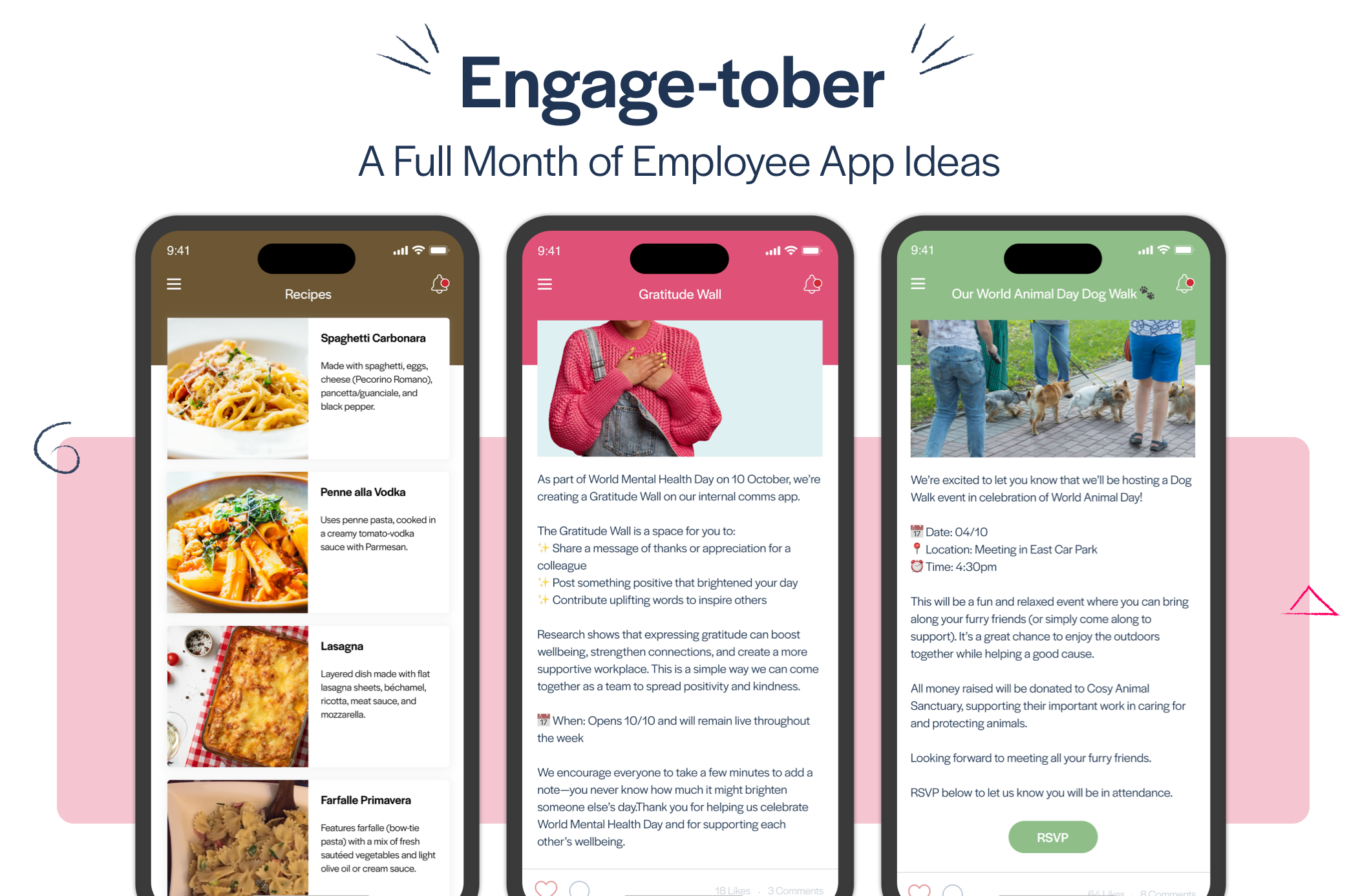
Blog
4 Must-Dos for Positive Employee Experiences During Culture Change
Restructuring, strategic transformations, mergers and acquisitions can sometimes have an effect of disrupting your workforce in not-so-positive ways. How can an employee app help with this?

Restructuring, strategic transformations, mergers and acquisitions — these are all organisational changes that are intended to disrupt the status quo for growth purposes, but they can instead have the effect of disrupting your workforce in not-so-positive ways.
That’s because with organisational change comes changes to a company’s culture — some of them deliberate, others unfortunate side effects.
Take an example of a merger, two companies coming together as one. Whilst most mergers are positive and intend to bring the best of both organisation's culture's together, the transition period is not without frustrations.
Why the right kind of company culture matters?
In the business context, culture generally refers to everything from the values, beliefs, and rituals that a company develops, to its work atmosphere, and even to how it treats others — including its own employees.
How an employee experiences their workplace is reflective of the culture within. Studies have shown time and again that a strong corporate culture leads to more engaged, productive, happy employees who are inclined to stick around. On the other hand, employees who don’t like a company’s culture are 24% more likely to quit.
Furthermore, it’s good for business. 88% of employees and 94% of management agree that a distinct corporate culture leads to business success.
Approaching culture change with employees in mind
When planning for approaching culture change within your organisation, you must consider how your employees will react to the changes and take a proactive approach. They may question the stability of their roles, be critical of executive direction they don’t understand, or be afraid of or averse to change.
How can you make sure your employees’ experiences with culture change are positive? By establishing transparency to keep your workforce informed and involved in the changes and by cultivating a shared purpose and identity.
Here are our four must-dos to make sure your employees thrive during times of transition
1. Establish consistent communication
Visibility into what changes are happening, when and why should take the form of consistent, top-down communication that doesn’t wind up unread in the inbox.
With an employee communications app, every single employee can get access to timely information about the changes in the same way.
Fairchild Medical Center in Yreka, California, turned to an app from Thrive to help solve their communication challenges during and after culture change. They learned that regular CEO updates delivered in the app was one way to keep employees informed and ensure alignment across departments.
2. Let your employees have a say
When decisions about change are occurring multiple rungs up the ladder, employees can feel as though their opinions aren’t valued. Likewise, employees who are spread across departments, offices or geographic locations need to be able to share updates, perspectives and find connection during times of turmoil.
One way to create a forum is via user-generated content publishing in an employee communications app. Users — your workforce — can create and publish articles, videos, and other multimedia-rich content that can help unify teams, provide key interdepartmental updates, and give individual members voice. Employees can also “like” or comment on content, which creates a conversational atmosphere.
3. Make it easy to get answers
Employees who have questions but aren’t sure where to turn for answers can become disengaged and even disgruntled. FAQs pages aren’t just for websites and shouldn’t just be external-facing. Developing a list of anticipated FAQS and posting it to your app, then continuing to update it as continued changes emerge or new questions pop up, can be a much sought-after resource for concerned employees.
Another key source of information for employees: A directory of important contacts. This was another in-app resource that Fairchild Medical Center utilised to help employees know exactly who they could turn to during the culture transition.
4. Foster recognition opportunities
Culture change can bring dips in morale and decreased engagement. One surefire way to lift morale is through recognition — which has been shown to boost company loyalty, especially among Millenial and Gen Z workers — and specifically peer-to-peer recognition.
Employees trying to survive culture change may already be in a sensitive place, and not feeling valued by management or their peers could lead them to look elsewhere. Because employees are 26% more likely to leave a job if there is a lack of respect amongst employees, provide opportunities for them to show gratitude and give digital high fives with peer-to-peer recognition in your employee communications app.
Next Steps...
If you are approaching or in the center of a culture change, and would like to learn more about how employee communication apps can help you engage, motivate and communicate better with employees, let us show you how we can help you.










